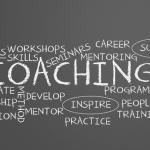The Sales Skills That Will Get You Hired (Or Promoted) in 2016



It seems almost unfair to ask sales professionals to think about training and development at this time of year. After all, having spent the last 12 months trying to land new customers and close more details than ever before, this is traditionally when they should be taking a well-earned break. Based on what customers are saying, however, they may not have much time to prepare for the challenges 2016 will bring.

It seems almost unfair to ask sales professionals to think about training and development at this time of year. After all, having spent the last 12 months trying to land new customers and close more details than ever before, this is traditionally when they should be taking a well-earned break. Based on what customers are saying, however, they may not have much time to prepare for the challenges 2016 will bring.
Just a few weeks, ago, for example, a sales training consultancy called Huthwaite International released the results of a survey of small and medium-sized business customers’ attitudes towards sales teams. Here’s a quick rundown of what was deemed important:
79%: Strong product and service knowledge
73%: Great listening skills
69%: Confidence
65%: Enthusiasm
46%: Persuasive
43%: Flexible
Many sales pros might look at those stats and nod, “Yep, all good.” Looking at what didn’t rank high on the list, however, might offer an indication of how sales skills will change in the coming year: Only 22 per cent think being inquisitive is key for sales success, which suggests reps aren’t necessarily asking the right questions after all that listening. In fact, many of these common traits are really pointing to skills more sales professionals will need to hone further. Let’s dive a bit deeper to show you why:
Strong Product And Service Knowledge . . . Of How Your Offering Might Evolve
Customers may be interested not only in your products themselves, but the way they’ll be available in the near future. Today you might sell physical objects in a brick and mortar location, for instance. When will online orders via e-commerce be an option? Will you have a mobile app that brings product and service information directly to customers’ smartphones? Will you always require customers to pay a one-time fee, or will they eventually be able to access certain items on-demand, the same way they use cloud computing to stream music and TV shows?
This goes well beyond the typical brochure information sales teams may have memorized in the past. Companies should start discussions about their product and service roadmap now so reps will be armed with some insight about the direction before they get stumped in a meeting.
Great Listening Skills . . . Even When You’re Not Directly Communicating
It’s one thing to sit quietly and look earnestly at a customer when you’re in the same room and they’re outlining their biggest challenges, or listening over the phone. It’s another to be listening before an actual conversation even begins by tapping into the data gathered in a CRM system, which would probably reduce the proportion of useless inquiries cited in the Huthwaite survey.
“Listening” will also increasingly take into account what customers and their peers are saying on social media — what they’re sharing or resharing from influencers they follow. There was also a time when sales teams could pretend to politely ignore what their competitors were saying. Now reps will look out of touch if they haven’t been following their competitors’ blogs, infographics and other content marketing materials, which may demand some kind of counter-argument or rebuttal.
Finally, think about what marketing automation will tell you about the buying stage a particular customer is in. Listen carefully. Otherwise, you may be reaching out prematurely, or after it’s already too late.
Being Confident, Enthusiastic And Persuasive . . . With Content
Just as sales professionals should be keeping an eye on third-party content that helps their customers solve problems, they should be ready to channel their natural talents into helping their company produce great content of its own. That doesn’t necessarily mean reps have to turn into writers. Video can be a great mechanism for bringing the most compelling qualities of sales professionals into a format that can be shared with customers and prospects. Sales teams can and should also be providing guidance and assistance with research, white papers and other assets that can move potential buyers through the funnel more quickly.
Being Flexible . . . And Not Just On The Price
Customers don’t just want to pay for a product or service. They want insight into the ways they can use a product or service to the best of its potential. As more organizations use analytics to study the purchase patterns and other information about their client base, sales teams should be looking for insights they can bring forward as part of closing the deal. Reps who show they know more about making a product not only work well, but work well in a specific sector like health care or financial services, are the ones who will prosper. Those who can show data about typical ROI for SMBs vs. a large enterprise will earn loyalty. Look for analytics to determine a lot about who wins or loses deals in the next year.
None of these skills are things you can cover off in an afternoon or over the holidays. Instead, they are areas the best sales teams will learn (and re-learn) over time. Like anything worth studying, though, they take what you already know to a whole new level.
Learn more about how high-performing sales teams are staying ahead of the curve with Salesforce’s free eBook:























